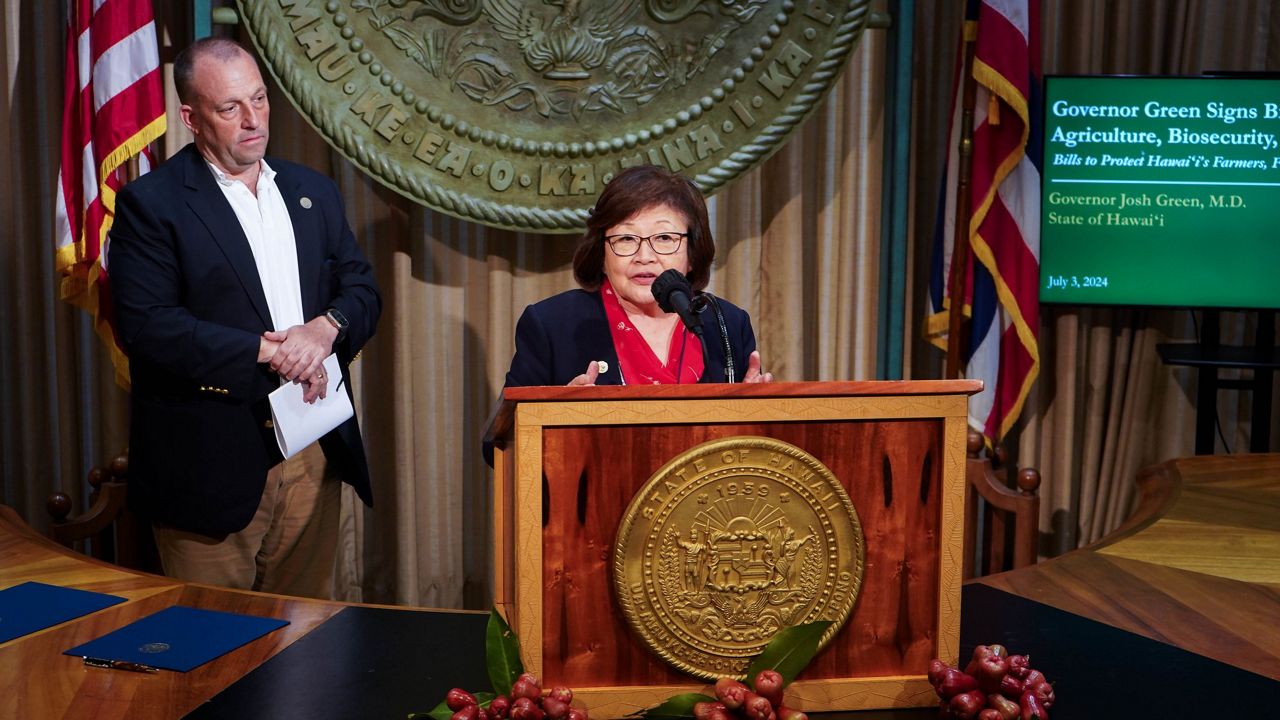HONOLULU — The state’s efforts to address the spread of invasive species like little fire ants, coconut rhinoceros beetle and coqui frogs will get a boost this year with record biosecurity funding passed by the state Legislature and approved by Gov. Josh Green.
“Protecting Hawaii’s natural resources and agricultural heritage is a top priority for our state,” Green said. “This record level of funding reflects our commitment to safeguarding our environment and ensuring the sustainability of our agriculture industry for future generations while also ensuring the responsible use of state funds.”
Under the freshly signed Act 230 (formerly House Bill 1800), state general fund appropriations will increase to $9.2 million from $6.2 million. Lawmakers said the dramatic increase in funding reflects the urgency of addressing threats to the state’s agricultural and horticultural resources.
“This legislation is a necessary step in our long-term plans for the protection of Hawaii’s unique ecosystems and our agricultural industries,” said Sharon Hurd, chairperson of the Hawaii Board of Agriculture. “We’re grateful to Gov. Josh Green and his administration, the Hawaii State Legislature and community stakeholders for working in concert with the Department of Agriculture to meet our pressing needs.”
The funding from ACT 230 adds to $10 million contained in Act 231 (formerly HB 2619), which was signed last week.
Act 231 requires the HDOA to lead and coordinate the state’s invasive pest control and eradication biosecurity efforts, establishes certain reporting requirements and appropriates funds for biosecurity programs and initiatives. As approved by the Legislature, the bill called for $19,780,660 in total appropriations, but Green applied line-item vetoes and reductions as part of his overall effort to balance state finances and maintain adequate reserve levels.
Act 231 provides funding for the state’s efforts to coconut rhinoceros beetles, including $1.2 million for drones, chemicals, nets and community engagement; $800,000 for green waste management; and 400,000 for compost reimbursement.
Other targeted species for which biosecurity funding was appropriated include brown tree snakes ($240,000); little fire ants ($1.5 million), coqui frogs ($74,355), two-lined spittlebugs ($600,000) and rose-ringed parakeets ($300,000).
In addition, $670,485 was appropriated to hire HDOA plant quarantine inspectors, entomologists, plant pathologists, planners, environmental health specialists, noxious weed specialists and other support staff.
Overall, the HDOA’s general funds for biosecurity initiatives and invasive species mitigation measures have more than tripled since Fiscal Year 2023.
“This historic investment in biosecurity and invasive species programs will significantly enhance our ability to protect Hawaii’s unique ecosystems and vital agricultural resources. We are deeply thankful to Governor Green and the Legislature for their commitment to this important issue.”
Michael Tsai covers local and state politics for Spectrum News Hawaii. He can be reached at michael.tsai@charter.com.



